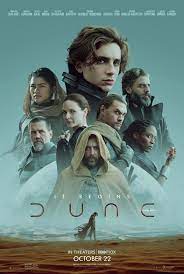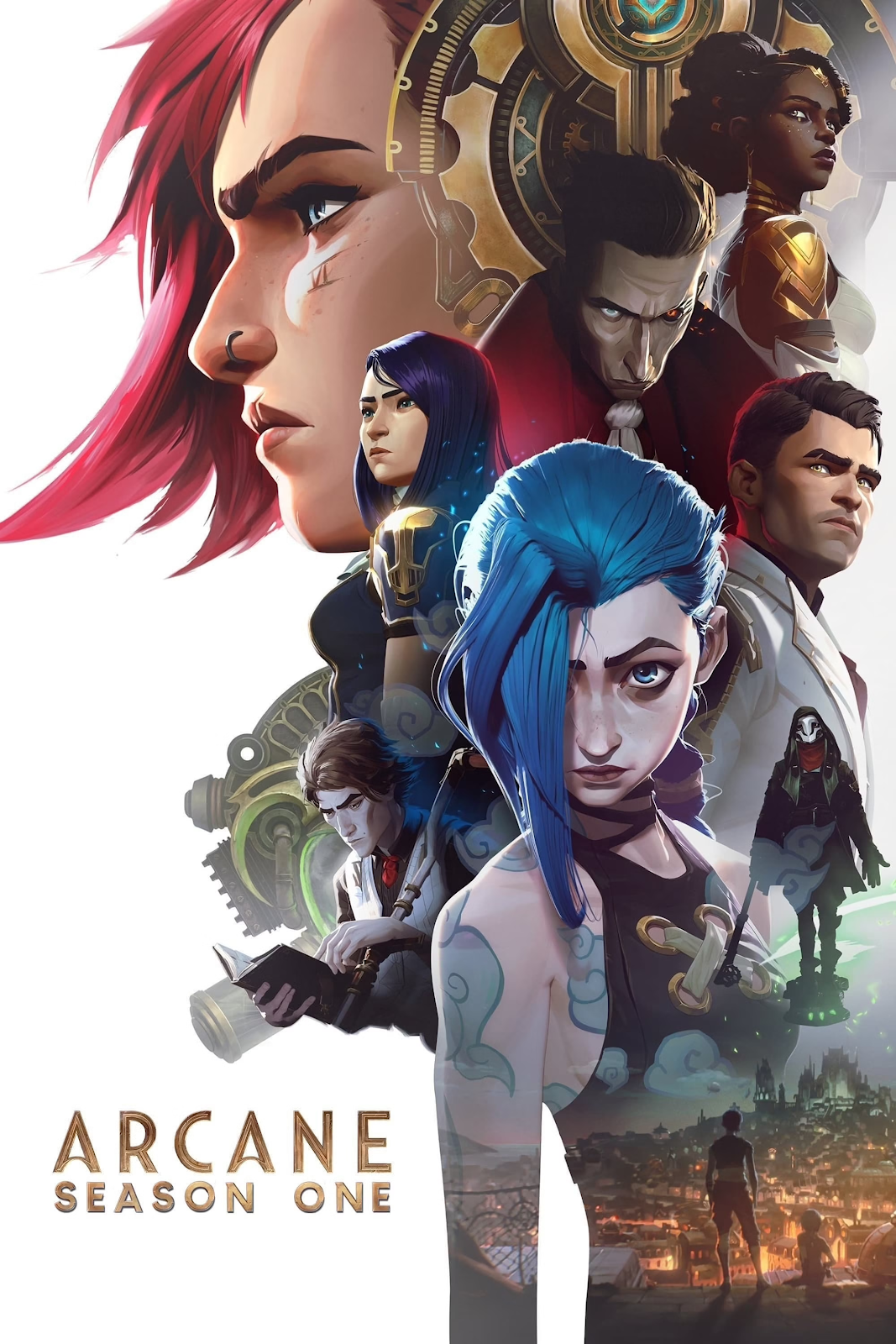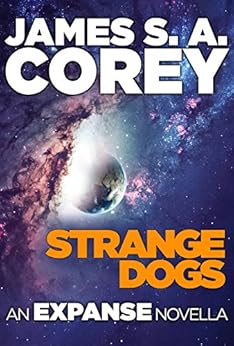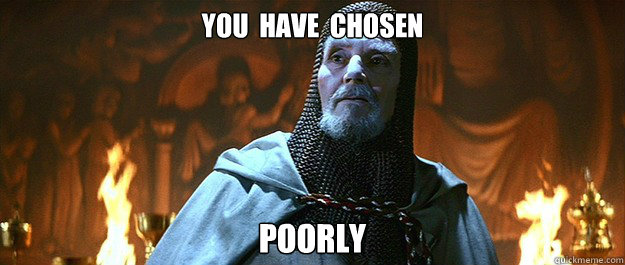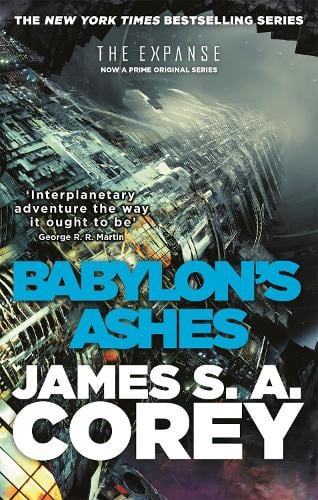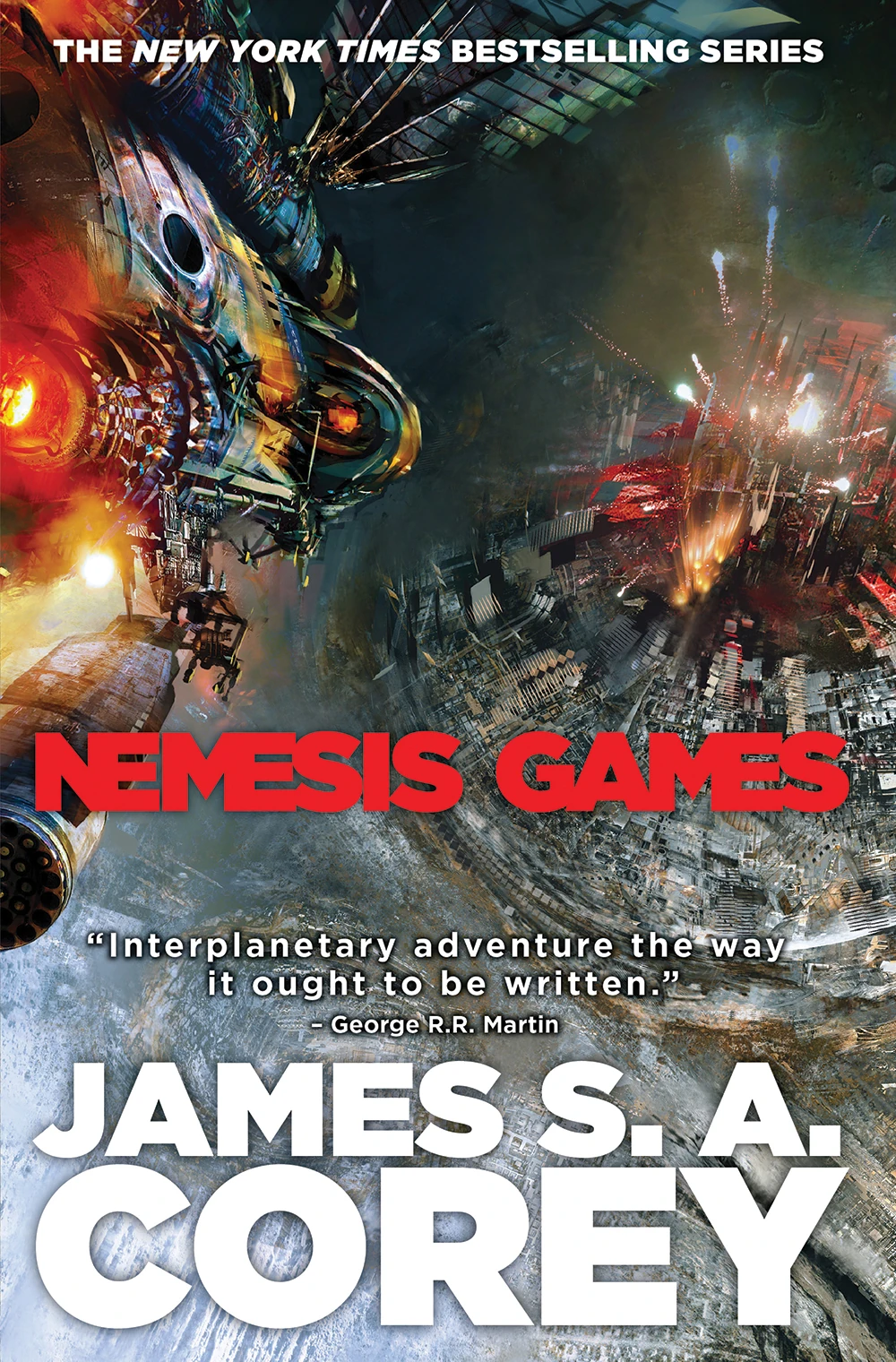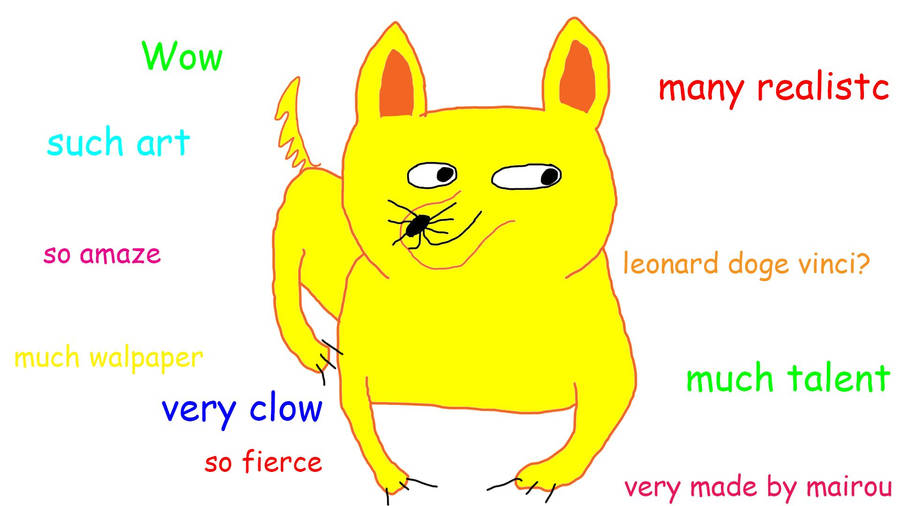This year, the BDP long form list includes five movies and one series - WandaVision - which I definitely think benefits from being included as a whole piece of work. Half the nominees are in the Disney stable: one Disney animation (Encanto) and two Marvel properties (WandaVision and Shang-Chi). Rounding out the list, we’ve got a witty Korean space adventure, Space Sweepers, and two ultra-serious takes on cornerstones of genre: (the first half of) Dune and The Green Knight. It all feels solidly genre (no awful Eurovision-as-seen-by-America movies, thank you voters), solidly Hugo quality, and it makes for a pretty interesting and varied set of viewing experiences.
What are your thoughts on the finalists as a whole?
Joe: Well, I’d like to start by arguing with you about last year’s Eurovision movie which was an absolute delight despite the inclusion of Will Ferrell as lead actor - but outside of Ferrell, Eurovision was a lot of fun and “Husavik” should have won an Oscar over the song from Judas and the Black Messiah because it was perfection in a song and also music that is important in the context of the movie should always win over end credits songs (though “Fight For You” is a really good song, if I’m being fair).
Wait - we’re talking about the Hugos, right? Sorry, I’ve got Oscar opinions.
Adri: Perhaps we should schedule in a “retro” 2021 Hugo conversation about the merits of that movie and to what extent the presence of Will Ferrell completely negates and outweighs them. Husavik is solid though, I’ll give you that.
Joe: That would be a conversation to have over that hypothetical beverage of choice, I think, but I’m more than happy to detour / derail this year’s Hugo conversation if you’d like.
As a whole, though, this is a really nice lineup of finalists. You mentioned the three selections from Disney in Long Form, but there’s a lot of quality in those selections. You’ll note that The Eternals isn’t on the ballot (and I really hope it’s not #7 on the long list). Not that we need to spend any time on the Eternals, but it felt like the lesser parts of three different better movies and we didn’t get any of those movies - but Shang Chi was wonderful, WandaVision was something specific and special, and we’ve seen Encanto quite a few times in my house. In some ways the surprises are The Green Knight and Space Sweepers - only because I wasn’t sure how many people would have seen either.
Likewise, I dig the variety of Short Form even if some of the episodes are deeper cuts from series that I’m not watching and might not quite get to by the end of voting. I’m certainly not caught up on the category for this conversation, but I think that’s okay. It is a sign, though, of how widely the Hugo nominators are watching for their SFF. It could also be a sign about how diffuse the vote totals might be. That’ll be something to pay attention to when it comes to looking at the Long List in August.
I think I’d like to start by talking about the film I think is most likely to win Long Form, which is Dune (officially retitled as Dune: Part One now that Warner Bros gave Villeneuve the funding to make the second movie).
The existence of Dune doesn’t make it an automatic winner, though i will note that the SciFi Channel miniseries Frank Herbert’s Dune was a finalist in 2001 (losing to Crouching Tiger, Hidden Dragon) - but Dune is biiiiiiig budget “core” science fiction. Whatever your feelings about David Lynch’s adaptation from the 80’s and Sting’s codpiece, this was probably the most anticipated science fiction property we’re likely to get and if there was even a chance Villeneuve was going to get the movie right, it was going to pay off huge - especially within the genre communities, though we’re not as remotely starved for the good stuff as we were decades ago.
But I think Villeneuve did nail Dune: Part One. It’s incomplete in ways that are completely necessary (I shudder to think about how this works as a single film) - so I’d understand anyone who was less than fully satisfied by the storytelling of Dune - but for a property I’ve read a number of times and watched every adaptation of - this was fantastic.
I also think the “bigness” (and the Dune of it all) is what’s going to push it over the top in the voting. It’s what I think the Hugo voters want science fiction to be all about.
Adri: Ah, Dune. I agree with you that this feels like the most likely winner (the only thing I see beating it is WandaVision), and it’s amazing the sort of white messiah drama you can get away with in 2021 if it’s in service of a beloved book adaptation. Dune the film has all the orientalism (and fatphobia) of its precursors, and that annoys the heck out of me, especially when compared to Wheel of Time in short form which, despite its gender essentialist limitations, did put some effort into reinterpreting its source in a way that included people of colour and queer identities. But, that’s a tangent.
Setting aside the limitations of its source material, though, Dune is kind of amazing as a big, heavy, unapologetically weird and ritualistic spectacle of a film, full of lingering shots of giant machines - and sandworms - and slow builds towards climactic moments. Also there is Zendaya, looking cute and windswept in a dream desert. I’ve never seen the old adaptation but this one carefully avoids any hint of campiness that might suggest its taking itself less than 100% seriously. I can see the artistic merit in it all, but I’ll be honest: it bored me to tears. I don’t care about Frank Herbert’s big vision and despite the presence of Jason Momoa and Oscar Isaac (albeit not wearing their best configurations of facial hair), I found nothing to keep me invested in this ponderous, dated take on colonialism in space.
Joe: Here’s the thing, that big vision from Frank Herbert *has* to come into play for Dune to not be the white savior / pro-colonialist take that Part One feels like. Paul’s journey starts out that way, we’re told he is the chosen one, the result of generations of a breeding program (with a small twist at the end if you want to nerd about it) - but if Villaneuve can make Dune Messiah as well as Dune: Part Two, it’ll turn that concept on its head because it’s a failure. Dune itself, though, taken without the sequels - absolutely.
I was disappointed with the portrayal of Baron Harkonnen here. It could have been done differently and less fatphobic, and *still* gotten across everything about that character.
Adri: Sticking with the big serious artsy films, let's chat about The Green Knight - because this is one I expected to really test my patience, and actually I enjoyed it a lot. It’s a retelling of Gawain and the Green Knight, with Dev Patel as a real wasteman version of the Arthurian hero. The story covers the Knight’s challenge and Gawain’s quest, a year later, to find him and allow him to return the mortal blow. It’s a very stripped down version of the official text and its moral - Arthur, Guinevere and Morgan are here, but unnamed, and the sequence of gift exchange at the castle is reduced to one of several events of the course of the journey - but what it lacks on that front is more than made up for by the constant unsettling tone and the tension it brings. It’s so sparse that it feels like a myth come to life - a feeling reinforced by the actual dream sequences and off-the-wall elements that show up for no reason that really moves anything forward. I came away from it not knowing what to think, but I certainly do think a lot about that movie now, and I feel like that means it’s succeeded at what it set out to do.
Joe: I don’t remember a time when I haven’t been reading Arthurian legends, or a time when I haven’t watched one adaptation or another. I’m a sucker for it all. John Boorman’s Excalibur was a particularly formative film experience for me as a teenager. Heck, I was even a sucker for First Knight, though I’m not sure Richard Gere was the best of all Lancelots. Or the okayest of all Lancelots. I digress, but the larger point is that I was inclined to like, if not love The Green Knight in many of the same ways that I was inclined to love Dune.
I….didn’t. The spareness mixed with excessive fever dream mythic-ness that stuck with you is where I got lost. The core of The Green Knight made sense, even if Gawain’s dumb-assery didn’t but I suppose it did drive the overall narrative, such as it is. The thing is - I’m not sure there was anything there. There’s no there there. Really, I just wanted to say that, but for me it’s true. It’s atmospheric, and that’s something that worked for a lot of people. The Green Knight is a mood, just as Licorice Pizza (not genre) was absolutely a vibe. What would have worked for me, not that anyone is in the practice of making movies or revising stories on my behalf, is the novelization of The Green Knight. The story of this story, which I suppose I can just go read whichever poet wrote Sir Gawain and the Green Knight.
Dev Patel *was* fantastic as Gawain, though. I have zero complaints in the casting and I would absolutely love to see another Arthurian movie with Patel as Gawain, but perhaps one a smidge more conventionally told. Oh! In random trivia, did you know that Liam Neeson played Gawain in Excalibur in one of his earliest roles?
Adri: I did not, thank you for adding to my disappointingly small pool of Liam Neeson facts!
Joe: Something I liked quite a bit more was Shang-Chi and the Legend of the Ten Rings. I’m not sure if every movie needs to be an origin story - but Simu Liu was spectacular as Shang Chi and the more of him in future Marvel movies the better. I’m also a big fan of Awkwafina in pretty much every movie I’ve seen (or heard) her in. I understand she’s somewhat controversial for some reason that I haven’t paid any attention to, but she hits just the right mark as Katy here and I likewise hope that Katy continues as Shang-Chi’s sidekick / best friend.
Adri: I’m aware Awkwafina has been pulled up for her use of Black American stereotypes in her comedy - for example, there’s a scene in Crazy Rich Asians where she puts on a “blaccent” that has been pulled up for critique. That clip is pretty yikes but it’s very difficult, as a white British person, for me to pick up on more subtle aspects of that appropriation without it being pointed out to me, so I don’t know to what extent it comes into play in Shang-Chi. On a surface level, I also really enjoyed her performance here.
Joe: It’s also not something I necessarily pick up on, which is perhaps a sign of my particular privilege. I just tend to enjoy her performances without knowing anything else about her.
Shang-Chi and the Legend of the Ten Rings is straight up a Marvel movie, with everything that entails, but at the same time it felt fresher than most - possibly because this isn’t a story that I’m familiar with, not that a lack of familiarity made The Eternals any fresher. It helps that Simu Liu is charismatic as hell, Awkwafina is a delight, and Shang Chi is *fun*. Unlike the Eternals, these are characters I want to see again and if we’re thinking about the larger Marvel Cinematic Universe and what the future of it looks like - that future *has* to include Shang Chi in a very prominent position.
And, not to handwave away the idea of Shang-Chi as a Marvel movie to dismiss it, but it’s a Marvel movie. A good one, but it does what it does and hits the beats you expect and it is well done, but it’s a Marvel movie. We know what this is. We can contrast this with WandaVision because that’s a different sort of thing as a long form tv show and I also think it’s *fascinating* that WandaVision was intended to be the second show out before Falcon and the Winter Soldier was pushed.
Adri: Yeah, my feelings about Shang-Chi can be summarised with “that was a fun iteration of the standard formula”. Cool aesthetics, good characters,, and it’s nice to have a Marvel movie that can be almost entirely understood without all the prior Marvel baggage (if you leave before the credits, the only outright point of confusion for a new viewer will be “wait, half the world’s population disappeared before?”, and you’ll miss the relevance of Wong and Trevor Slattery (who, to be fair, I’d also forgotten the past appearance of until just now (whoops, brackets in brackets))). I’ll happily take more origin story superhero movies if it mitigates the increasing level of prior knowledge that you’re expected to have to watch the MCU, though of course more origin stories = more movies you have to watch to understand the big team-ups. I am terrible at watching films and therefore films that require you to watch other films are kind of the worst for me.
Anyway, so far I have only watched the post-Endgame stuff that has landed on this ballot, and my feelings are Loki = good but don’t care about that guy, Shang-Chi = lots of fun but doesn’t really set my world on fire, and then there’s WandaVision, which is formula breaking and emotionally intelligent and, I think, kind of amazing. I’d tried and failed to watch the series last year, tapping out fifteen minutes into the ‘50s sitcom homage (TV that expects you to have watched other TV, also not a good angle for me), but once you get past the first two episodes and their playing the sitcom premise relatively straight, things get a whole lot more interesting.
Joe: I had to talk my wife through the first episode of WandaVision, which probably succeeded for me because I had read / heard enough about what was going on with the format - so I was on board for how absolutely cool the concept was (especially if you know there’s a concept and don’t nope out of the first fifteen minutes). But then, I was partially raised on television and have seen just about all of the reference points.
I’m on board with the general criticism of WandaVision, which is that it just *had* to conclude with a very Marvel big battle - but all of this is based on comic book characters so I just assume that it’s a given that someone is going to start throwing magical fists at some point. But around the magical fists was probably the most compelling and emotionally affecting story in the entire MCU.
Adri: That’s fair, it does end up in a far less interesting “place” than where it begins (and with a lot less Monica Rambeau than I expected). It is also very much in the midst of Big Marvel Storytelling, so you won’t understand what happened here unless you’ve seen a lot of previous content, and there’s further evolution for Wanda in Doctor Strange and clearly more stories to come. But I just really like the way it uses the evolving storytelling language of sitcoms, and does so to talk about grief through this angle of the lost potential for domesticity and quiet family happiness, when “normal family time” is something we very rarely see superhero movies do (except whatever happened for a moment there with Hawkeye, which was silly).
Joe: Yeah - as a whole, WandaVision was just so well done and interesting creatively. Which is in stark contrast to the show that was *supposed* to go first - Falcon and the Winter Soldier, which was just….basic (though not as dishwater dull as Loki was, but I maybe had higher hopes for Loki than I did for F&WS).
Adri: Funny aside about Loki, and short form in general: I spent episodes 1-4 (with 4, “The Nexus Event”, being the Hugo nominated episode) feeling increasingly invested in all the wild antics and the whole deal with the timeline authority and its weird authoritarianism. Then I got to The Nexus Event, watched it in all its post-credit cliffhanger glory, went “that’s exciting!” and have since felt no desire to go back and actually finish the story off. The same thing happened to me with Wheel of Time (who could the dragon reborn possibly be?? Is it Rand the Bland????), but at least with Wheel of Time I knew I was uninvested, whereas Loki’s shallow hold on me turned out to be a surprise! Contrast, again, with Star Trek: Lower Decks, which I also felt quite uninvested in - I’m not a Star Trek person, so most of the referential material has minimal resonance for me - but which very easily kept my attention after the specific Hugo nominated episode was done.
Joe: I don’t re-watch a whole lot right now, but I adored The Wheel of Time so much I actually re-watched that first season. I wanted more, to the point that I also started my series re-read in order to scratch that itch. My only real complaint is that the season really should have been at least two episodes longer because the pacing was a bit rushed at times - but I’m obviously coming at that show as a long time fan of the books. Loki, on the other hand, I expected to be invested in because the character was a lot of fun in a supporting role - but the whole concept of Loki the show just did *not* work for me. There were moments, but nothing that coalesced to anything interesting. Contrast that to The Expanse, which is a show that I love but seldom feel compelled to rush through or make appointment viewing - but “Nemesis Games” was a hell of an exciting episode that I cared quite a bit about.
Adri: But let’s talk about the last couple of movies. Encanto is the core Disney formula’s take on Colombian aesthetics and culture, and it’s success in doing so was analysed by our own Arturo in his essay last year far better than either of us could articulate (though one key takeaway is that Colombia got a much better movie in Encanto than the region of South East Asia got in the blandfest that was Raya). Centred around the Madrigal family and their only non-magical daughter Mirabel as she tries to keep her home from (literally) falling apart, Encanto provides an entertaining and fresh-feeling take on the classic “young woman seeks self actualisation despite the obstacles presented by her family and/or culture” story that Disney has been telling, against one backdrop or another, since at least The Little Mermaid. It’s also got some excellent songs from Lin-Manuel Miranda. I live my life without the presence of small children and have therefore only seen Encanto once, so I don’t know if it gets better or worse on repeated watch - but there are worse things to have stuck in your head than “We Don’t Talk about Bruno”, I’m sure.
Joe: Yeah, I don’t know if we’re going to even approach Arturo’s essay, which I still maintain is the best thing we’ve ever published and probably should have been on more people’s ballots for Related Work. If I recall correctly, one of Encanto’s directors saw the essay and said he nailed it.
I won’t argue with you over Raya and the Last Dragon, which I likewise thought was delightful - but I’ve got kids, so I watch most of the Disney / Pixar movies a number of times and Encanto has been on repeat at our house since it came out. First - the music. We saw Encanto in the theater as a family, finding a nice early afternoon time slot that wasn’t too packed, since it’s movie watching in the time of Covid, and I *had* to buy the soundtrack - so that’s something that has also been on repeat in my house since November. Both the movie and the soundtrack hold up to repeat viewings / listenings.
Also, “Surface Pressure” is an absolute banger of a song. Team Luisa all the way.
Adri: I don’t think there’s a bad song in there, but Dos Oruguitas is something else.
The final film we haven’t talked about is Space Sweepers, a Korean space adventure that plays to a lot of very obvious tropes when it comes to character arcs and motivations, but which I thought came together really well, with a lot of funny moments and a surprising amount of emotional depth.
Joe: I really liked Space Sweepers! It’s not my favorite from the Long Form ballot, but it fits in very well. I’ll confess to not being able to give it my 100% undivided attention when I watched it, but it’s also something I would consider giving a re-watch.
Also, I found it interesting how the film envisioned a multi-lingual future. If I have the count correct (and by me, I mean the internet) there were 9 different languages and it all worked and fit together and made sense how that was a thing. It’s not a homogenised future where everyone looks and talks the same within a particular “culture” or location.
Adri: Yes, I really appreciated the take on languages too - right down to how it has characters who naturally switch between languages and dialects even though it doesn’t make a difference to the way people understand them. Overall, this film didn’t blow me away as much as my favourites in the category, but I really enjoyed watching it and I hope we get to see more of this sort of diverse, irreverent, standalone science fiction in future.
Joe: Well, that’s that for Dramatic Presentation: Long Form. I don’t feel at all certain how I’m going to rank these, but I’m between Dune and WandaVision for that top spot and fairly certain The Green Knight will be at the bottom on my ballot. I could wave my hand at the middle of the ballot. Probably Encanto in third and flip a coin for fourth? What about yours?
Adri: My top three, in order, are WandaVision, Encanto, and The Green Knight! But really I have a top five, and then I have Dune.
Neither of us have finished with the short form nominees yet (although I’m close: I just have to work through the two seasons of For All Mankind leading up to the nominated episode) but do you have any thoughts on the ones you’ve watched? It’s fun to have a category this year that’s not going to be won by The Good Place, and I appreciated the nudge to catch up on Arcane - which is on the whole excellent, despite its infuriating use of facial difference to denote the bad guys and the lack of full confirmation of its overt queer romance - and The Expanse. Overall, I don’t have very strong feelings on the category, but it does cover a lot of ground when it comes to TV sensibilities and that’s great to see.
Joe: We touched on some of my general thoughts earlier (I was bored by Loki, loved Wheel of Time, etc) - but I’m interested in how we, or maybe just I, think about Dramatic Presentation Short Form. In a very correct sense, this is about the discrete episode that is nominated. Is *that* the best piece of short form programming? But it’s also hard to evaluate separately from the context of the show itself. For me, “The Flame of Tar Valon” was one of my favorite episodes in a show that I adore, but it is a more successful episode because there is more context. The episode is earned.
On the other hand, I have absolutely no memory of “The Nexus Event” from Loki and even after reading a recap, only the vague understanding of how that episode fit in and to the overall arc of the show - so, did I like it more than the other episodes of the series. Do I think it’s good on its own? I’m certainly not going to rewatch an episode of a show I didn’t like to find out.
The only other episode I’ve seen (so far) is “Nemesis Games” from The Expanse. It’s the finale from Season 5 - after a brief refresh I remember it much more than the Loki ep, and (as with so much of The Expanse) - it was really good and a hell of a season finale. I haven’t been quite motivated to watch the full season of Arcane just to get to get to the finale, though I’ll admit to watching all 5 seasons of She-Ra last year just to get to the nominated episode(s) so really I’m a fraud. Likewise, I don’t have Apple+ right now and I somehow never started For All Mankind - so I do still want to watch the show, I’m going to wait until whenever an Oscar contender is on later this year and then try to catch up for that month. I’ve got enough streaming in my life that I just don’t have a strong desire to get another provider even just for 1-2 months. I *will* watch the episode of Star Trek: Lower Decks with absolutely no context prior to voting because it’s in the voter packet and I watched a lot of Deep Space Nine and Voyager with no context so why not get back into Star Trek television without context either? I probably will watch Arcane at some point, though. Just not sure if it’ll be before voting closes.
Adri: Nemesis Games suffered from the need to write out a major character following extensive sexual harassment and abuse allegations against one of their actors: it’s handled as well as possible in the context and it doesn’t detract from the overall story, but it does make the episode as a whole a bit odd. Still, I think the Expanse keeps earning its spot in this category. Plus, the Star Trek episode is absolutely watchable in zero context, though it benefits from an understanding and love for Trek in general.
It's going to be Arcane for me in this category, though, unless For All Mankind gets a surprise hold on me.
And with that, we’ve covered all of the dramatic presentations! Join us for our next conversation on short stories, coming (hopefully) soon!
And with that, we’ve covered all of the dramatic presentations! Join us for our next conversation on short stories, coming (hopefully) soon!
Joe Sherry - Co-editor of Nerds of a Feather, Hugo Award Winner. Minnesotan. He / Him
Adri (she/her), Nerds of a Feather co-editor, is a semi-aquatic migratory mammal most often found in the UK. She has many opinions about SFF books, and is also partial to gaming, baking, interacting with dogs, and Asian-style karaoke. Find her on Twitter at @adrijjy

